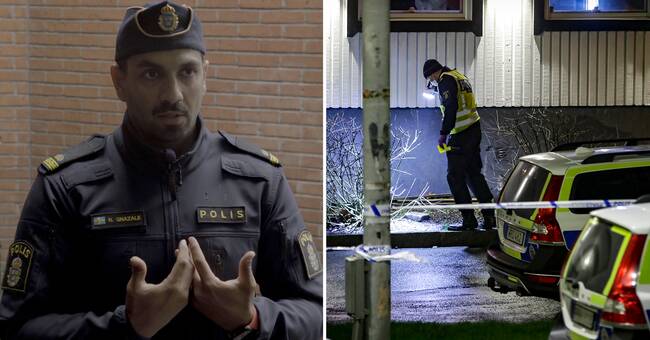After the shooting in Biskopsgården, Nadim Ghazale and his Borås colleagues were called in as reinforcements in the neighboring town.
He describes how the emotions shifted between anger and sadness after the shooting - at the same time as he feels frustrated at not being able to be helpful in the investigation.
- You want to do so much.
We police officers are used to shopping and now we are a bit paralyzed.
We are waiting for what will happen, he says.
That police officers are killed in the line of duty is relatively uncommon in Sweden.
In the last 120 years, there have been around 30 cases.
But it is still a risk that police officers always carry with them, says Ghazale.
Not least in the form of risk-minimizing work so that a situation similar to that in Biskopsgården cannot happen.
- It is very much alive in everything we do, he says.
"More vulnerable today"
At the same time, he describes how the police's work situation has changed in recent years.
The aggravated violence has crept closer and become more widespread, according to Ghazale.
However, this does not mean that the police should take a step back, he says.
- Some work environments we are in are a little more dangerous than others, but that does not mean that we should not be there.
Maybe we should be there with even more or develop that tactic.
But yes, I think you are more vulnerable today.
Now the focus is on the investigation, but in the longer term Ghazale believes that the shooting may have consequences for the police's work in general.
He draws parallels to the police murders in Malexander in 1999, resulting in new guidelines and tactical changes within the corps.
- I do not know how this will affect the future of the police, but something will surely come out of it, says Nadim Ghazale.

